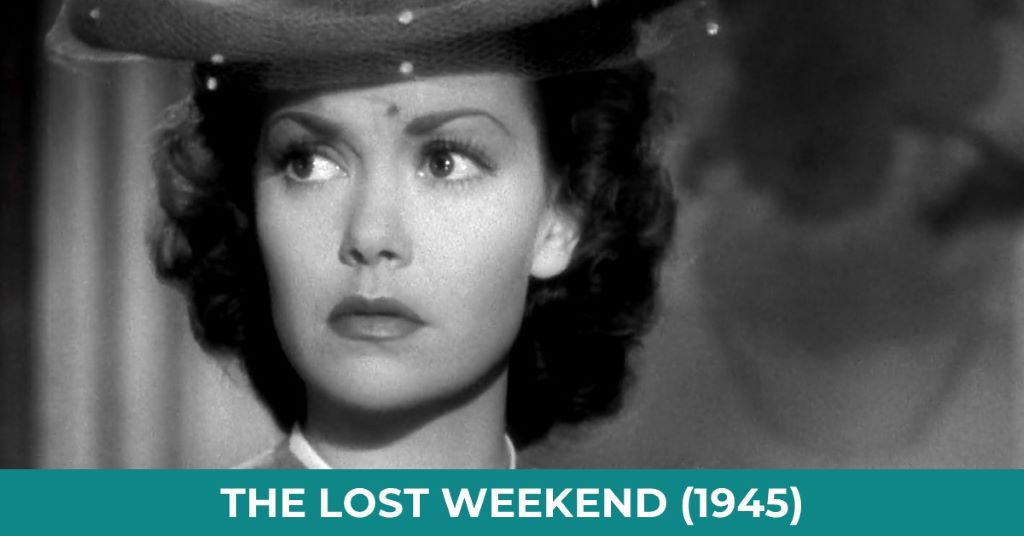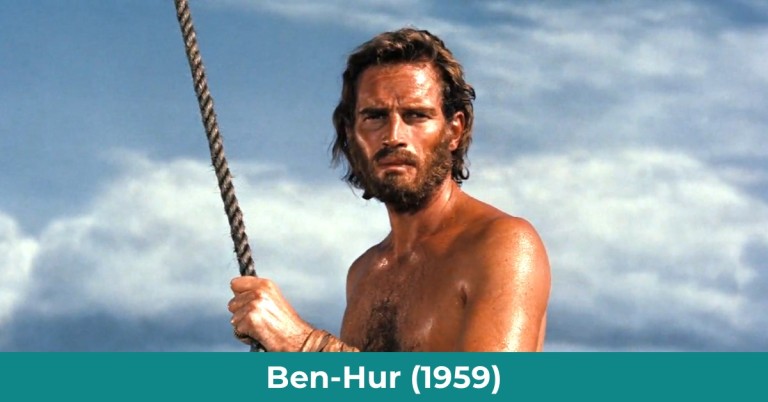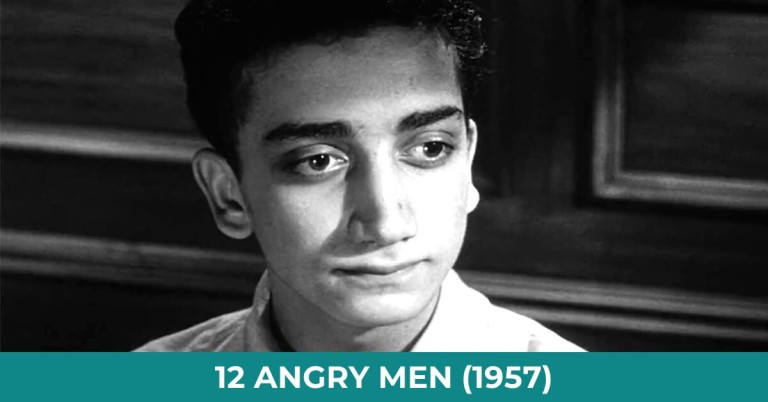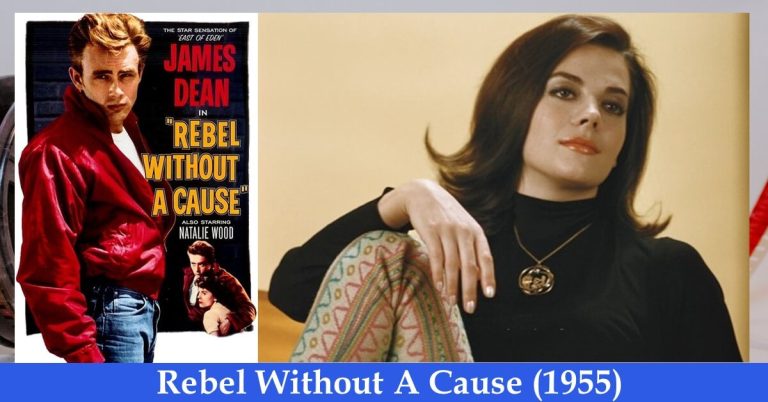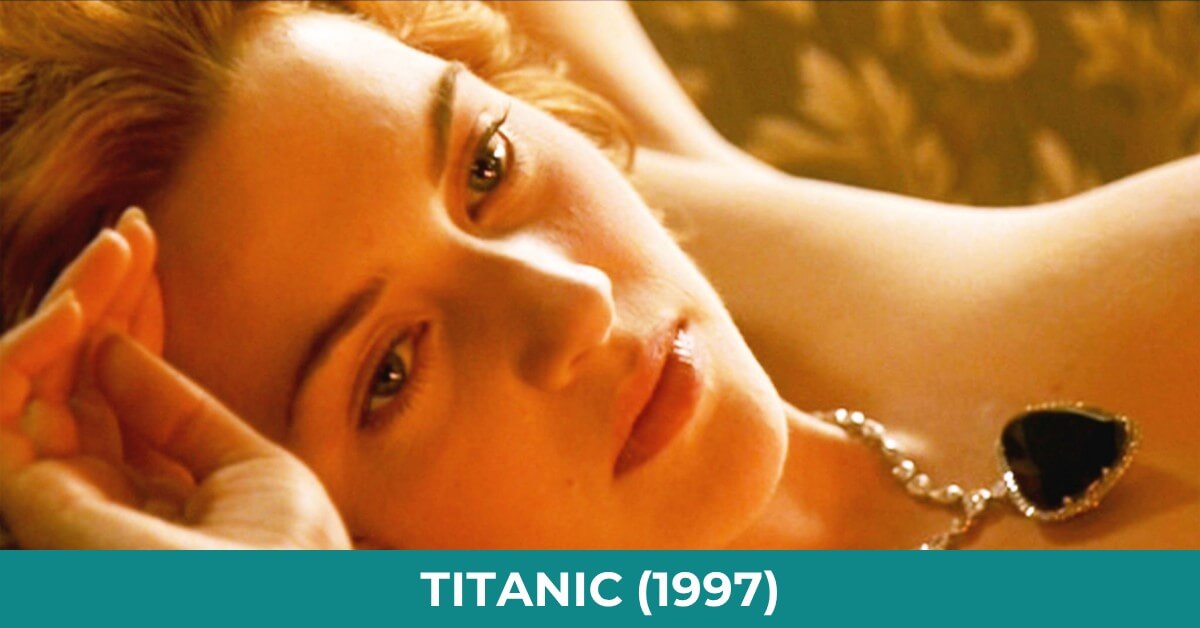The Lost Weekend 1945: A Cinematic Journey Through Despair and Hope
Last updated on November 5th, 2023 at 09:06 am
The Lost Weekend is the story of an alcoholic aspiring New York writer, Don Birnam, who struggled between his addiction and passion for writing and was at last rescued by his girlfriend, St. Helen, with whom he accidentally met in an opera show. Preventing him from suicide, she had him realise his talent and commit to his passion for writing his novel, The Bottle.
The film takes place over a weekend of five days when he was supposed to accompany his elder brother, Wick, to the countryside, but missed because of his alcoholism, during which he tried to quit drinking and finish his novel. However, he got embroiled in the vicious cycle of drinking.
Instead of him accompanying his girlfriend to the music convert that day, Don asked his brother, under whose charity he lived, so he can go to the bar and enjoy drinking. Don, drunk, waited on their return so he and his brother can leave for the weekend at 6:30 pm. But he missed the chance.
Because he had forgotten to return home on time due to heavy drink, and Wick had left alone, infuriated, giving up all hope on him. Yet, unconvinced, Helen refused to give up on him. The story unfolds as the two brothers prepared for the weekend. Having said that, The Lost Weekend leaves us with some insights, discussed below.
The Lost Weekend is a 1945 film directed by Billy Wilder and starring Ray Milland as Don Birnam, Jane Wyman as St. Helen, and Phillip Terry as Wick Bernam. The film is based on the novel of the same name by Charles R. Jackson, which was published in 1944.
The movie is a classic of film noir and is widely regarded as one of the best films of the 1940s. The film begged four Oscar awards making it one of the Best Pictures, and it is one of the 101 best films of the 100 years I have been reviewing.
Storyline: The Lost Weekend
On Thursday, alcoholic New York writer Don Birnam and his brother Wick were preparing for a four-day weekend, starting from Friday to Tuesday. Before leaving, Don’s girlfriend, Helen who he accidentally met with during an opera show when his raincoat—with a bottle of whiskey in the pocket—mixed with her leopard coat in the cloakroom, showed up declaring that the concert authority sent her two tickets.
Instead of letting her go to the concert alone, Don suggested changing the 3:15 pm train to 6:30 so Wick can accompany her to Carnegie Hall for the concert. Knowing Don had no money to buy alcohol and disposing of what he had hidden, they were left for the concert.
As craving arose, Don desperately looked for a drink inside the apartment only to find none. But after having the 10 dollars which Wick left for the cleaning lady, Don headed to the liquor shop. After buying two bottles of rye to take on vacations, he had more alcohol at Nat’s Bar. He drank at the bar so heavily that he forgot to rerun home at 6:30 to accompany his brother to the weekend.
But Helen stayed back while Wick left outside the door waiting for Don’s return insisting that she cannot give up on him, and his sickness. But seeing Helen at the door, Don snicked through the back door and hid one of the liquor bottles and drank the other.
The next day, at Nat’s Bar, Nat criticized Don’s insensitive treatment towards Helen. Don reveals to Nat that he intends to write a novel about his battle with alcoholism, called The Bottle. There he lamented to Nat about why he did not meet Helen’s parents. Though went to meet them at the Manhattan hotel, Don got back when he overheard them criticising his unemployment wondering whether he was good enough to provide for their daughter.
That night when he got back home without meeting her parents, Helen follow Don to her his residence where he tried to hide himself from being questioned by Hellen about the reasons for not showing up. Wick said that Don could not meet them because he had to travel to Philadelphia for his writing business.
However, Don revealed himself from hiding as Helen intends to leave saying that whatever good things Wick told about him are untrue and admitting that he is a drunkard. When Helen asked him why he drinks he said he drinks because of who he is or rather what he is not, what he wanted to become but did not. He wanted to become a writer but could not become one.
Don confessed that there are two Dons of him: the Drunk Don and the Writer Don. The drunk part of him compels his writer part to drink and drags him to the bar. He also revealed that because of his alcoholism, he wanted to commit suicide on his 30th birthday for which he bought a gun and bullets but he had to pawn the gun for three quarts of whiskey. Because his Don the drunk part made him and the writer part want a drink first before killing himself.
When suggested by his brother as to why he does not take other jobs, Don replied, “Most men lead lives of quiet desperation. But I can’t take quiet desperation (acceptance of–and surrendering to–circumstances)”. But Helen believed he had the quality of being the writer that he wanted to be.
At a point, Don asked Helen to leave him to be free of trouble. However, she replied by saying that just because of her rivalry with him and his love for alcohol, she would not leave him and that she is going to fight against it. Recalling their relationship, Don told Nat that she had been fighting against his alcoholism for three years. He left Nat’s bar by promising that he will start writing the novel.
But at home when he starts writing the novel, his alcohol cravings took him and he began a desperate search for the bottle he hid the previous night. Unable to find it, he visits Harry and Jones, another bar where he was caught stealing money from a woman’s purse, to pay the bill for alcohol, and was thrown out of the bar. But back in his flat, he finds the bottle he had hidden and drinks himself into oblivion.
On Saturday, Don tried to sell the typewriter to a pawn shop so he can buy more alcohol, but the pawnshops were closed for Yom Kippur, a Jewish holiday. Desperate for money, he visits Gloria, a prostitute from Nat’s bar who had a crush on him. She gave him some money, but he fell down her stairs and was knocked unconscious.
The next day when Don opened his eyes, he found himself in an alcoholics’ ward where nurse Bim Nolan mocks him and other guests at “Hangover Plaza”. When Bim offers to help cure his delirium tremens (Oxford defines DTs as “a physical condition that affects people who regularly drink too much alcohol when they stop drinking alcohol for a while; they feel their body shaking and imagine that they are seeing things that are not really there.”), while it was still at the primary stage, Don refused help and escaped while the staff were occupied with a raving, violent patient.
On Monday morning, Don stole a bottle of whisky from a store after threatening the owner and remained drunk the whole day. However, in his delirium tremens, he saw a bat flies in through his window and killed a rat inside the hole in the wall of the apartment, leaving a trail of blood. Finding Don in such a state and collapsed, Helen then stays accompanying him overnight on his couch.
On Tuesday morning, while Helen was still asleep, Don slips out with her leopard coat to a pawn shop. Realising Don’s acts, she trails him to the pawn shop and was told by the pawnbroker that instead of selling the coast, he traded it for a gun he deposited there, for which he has bullets at home. Helen realised the imminent suicide of Don, and rushed to Don’s apartment and interrupts him just before he is about to shoot himself.
He said he wanted to die because of alcohol, moral anaemia, fear, shame and DTs. She reasoned with him not to waste his strength by pulling the trigger. Instead of promising her anything, she wanted him to stop and that there is no cure besides stopping. She reminded him of his talent and ambition, and that his purpose in life is not gone. Nat appeared with his typewriter when she was pleading with him not to commit suicide.
After Nat leaves, Helen convinces him that ‘Don the writer’ and ‘Don the drunk’ are the same person, and must be reconciled. Nevertheless, Helen found it miraculous that someone from somewhere sent back the typewriter to him because they want to be alive.
She implored him to write about what he already has started, The Bottle, which is about his horror, humiliation, and nightmares which she thinks must be put down on paper in order to get rid of them. To Don’s failure to find even the first line of the novel, she replied, “you couldn’t write the beginning because you did not know the ending”.
He commits to writing his novel, dedicated to Helen, which will recount the events of the weekend. He drops a cigarette into a glass of whiskey to make it undrinkable as an indication of his resolve.
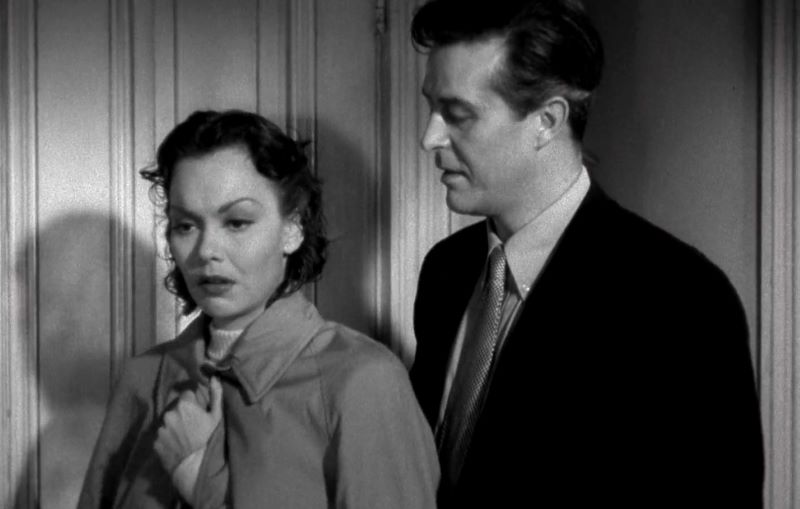
Personal Opinion
As discussed above, The Lost Weekend leaves us with some important, yet well-established thoughts on alcoholism, and human relationships, such as Don’s complete reliance on his brother’s charity and his girlfriend’s optimism about Don’s healing and her tenacious attitude in that end. As a younger brother Wick bore Don’s burden and as a friend and girlfriend, Helen put up with his addiction problem for more than three years because she saw the potential in him as a writer.
Helen, coming from an honourable family, loved Don sincerely and was determined to change him for the better and never lost hope on him. Not only did she save him from his dead, frustration, and despair, she successfully navigated his direction to his purposeful passion, the passion of being a writer.
How many of the other Dons are dying in quiet disposition, hopeless and bound by the vicious cycle he thought would be impossible for him to get out of? Every Don might be waiting for a Helen, to be rescued and redirect their lifestyle. I like the way “quiet disposition” has been explored.
One of the most outstanding aspects of The Lost Weekend is the way in which it illustrates the experience of addiction. The film is unflinching in its portrayal of Birnam’s struggles, showing how his addiction affects every area of his life. The movie is also notable for its use of cinematic techniques to convey Birnam’s mental state. It also explores the theme of masculinity the was Don Birnam, a writer and an intellectual, takes pride in himself about his ability to control his own life, and that it is not a sign of weakness to ask for help.
Addiction is indeed a never-ending and unquenchable phenomenon in human life. Many people are trapped in various addictions. But addiction has one trait in common: the cravings, cravings for more, regardless of one’s socioeconomic state. The thirst and cravings for substances are stronger than hunger.
Don reveals that in his question, “would you have me spend my money on food? My appetite is quite small, but my thirst is enormous.” He additionally considered, “The days, even the hours themselves, seep away. The world goes grey, blank. The only colour left in life is the liquor.”
I think addiction is psychologically felt and neurologically generated inside the brain when one resolutely resigns to what their pessimistic self tends to believe as to their worth. Uncertainty, fear and anxiety activate pain in our brain that leads to lower levels of serotonin and dopamine. Lower levels of happiness neuro-chemicals like Serotonin and dopamine lead to a higher level of despair and anxiety. Don gives the reasons for his drinking, “I’d drink to counterbalance despair. And then one to counterbalance the counterbalance.”
All of a sudden, hopeless, anxious people get back their hope, purpose and confidence after consuming addictive substances. They get a tank of happy hormones instantaneously. Instant gratification is made handy. Though that artificially obtained instant gratification one feels the pleasure at the cost of peace and peace of mind. Pleasure is sensation-oriented, physical, organic and immediate and mostly transient while peace relates to our mind, and psyche, about fulfilment, not instant but long-lasting.
Don understood the consequence of that instant pleasure that lies in alcohol, but like any other addict, observes what it causes in him. He tells Nat, the owner of the bar, “It shrinks my liver, doesn’t it, Nat? It pickles my kidneys, yes. But what it does to the mind is even worse. It tears apart the tissues of the mind, the green fields and grey folds of the brain, the special wet and glittering branches of thought, all those delicate and intertwining tendrils of feelings, the infinite number of subtleties that constitute life itself.”
“It tosses the sandbags overboard so the balloon can soar. Suddenly, I’m above the ordinary. I’m competent, supremely competent. I’m walking a tightrope over Niagara Falls. I’m one of the great ones. I’m Michelangelo moulding the beard of Moses. I’m van Gogh painting pure sunlight. I’m Horowitz playing the “Emperor Concerto”.
The alcoholics are always broke. They have to make sure that they always have something to drink to get drunk. Don reveals the idea in the following way: “I may never touch it while I’m there, not a drop. What you don’t understand is that I’ve got to know it’s around. I can have it if I need it.
I can’t be cut off completely. That’s the devil. That’s what drives you crazy.” Amusingly, Don even had to deposit the gun, for the lack of money, that he bought to kill himself when cravings arose and had no money to buy. He later traded off the gun with Helen’s leopard coat.
Still, The Lost Weekend can be considered a romantic one. Though met accidentally, Helen remained with Don through the relational upheavals. Don once described love for Helen, “love is the hardest thing in the world to write about. It’s so simple, you have got to catch it through details, like the early morning sunlight hitting the grey tin of the rain spout in front of her house. The ring of a telephone that sounds like Beethoven’s Pastoral. A letter scribbled on her office stationery you carry in your pocket because it smells like all lilacs in Ohio.”
The Lost Weekend is a powerful and poignant film that explores the devastating effects of addiction. The movie shows how alcohol can destroy a person’s life and how difficult it can be to overcome addiction. The film also highlights the importance of family and the role that loved ones can play in helping someone recover from addiction.
Conclusion
The Lost Weekend is a classic film that continues to reverberate with audiences today. It’s astonishing to display the character traits of addiction and an addict and its effects on individuals and their loved ones are both powerful and moving. It explores another side of human psychology, known as “the quiet desperation”.
With very few actors involved, the film is a testament to the power of cinema to tell stories that have the ability to touch our hearts and minds of cinephiles. Leaving some other great films, I have considered it of the 101 best films because of its theme: love, relationships and alcoholism.
